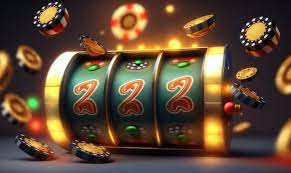Jawara88: Daftar Link Gacor Thailand Slot Maxwin – Jawara88 adalah destinasi terbaik bagi para pecinta judi slot online yang mencari pengalaman bermain yang mengasyikkan dan menguntungkan. Dengan koleksi slot gacor Thailand yang lengkap, Jawara88 menawarkan berbagai pilihan permainan slot yang menarik serta peluang kemenangan yang besar bagi para pemainnya.
5 Keunggulan Bermain Situs Slot Jawara88
Bermain di Jawara88 memiliki sejumlah keunggulan, di antaranya:
- Koleksi Slot Gacor Thailand Terlengkap: Jawara88 menawarkan koleksi slot gacor Thailand terlengkap dengan berbagai tema dan fitur menarik. Sehingga Anda dapat menemukan permainan yang sesuai dengan selera Anda.
- Tingkat Kemenangan Tinggi: Slot gacor Thailand di Jawara88 memiliki tingkat kemenangan yang tinggi. Sehingga Anda memiliki peluang besar untuk meraih kemenangan besar setiap kali memutar gulungan.
- Transaksi Aman dan Mudah: Jawara88 menyediakan sistem transaksi yang aman dan mudah. Dengan berbagai metode pembayaran yang terpercaya dan layanan pelanggan yang responsif.
- Promosi dan Bonus Menguntungkan: Jawara88 memberikan berbagai promosi dan bonus menarik kepada para pemainnya. Seperti bonus deposit, cashback, dan turnamen slot, yang dapat meningkatkan peluang kemenangan Anda.
- Pelayanan Pelanggan Profesional: Tim pelayanan pelanggan Jawara88 siap membantu Anda dengan layanan 24/7, menjawab pertanyaan Anda dan memberikan bantuan yang diperlukan dengan ramah dan profesional.
3 Tips Bermain Slot Online Jawara88
- Pilih Slot dengan Tingkat RTP Tinggi: Pilihlah slot dengan tingkat RTP (Return to Player) yang tinggi untuk meningkatkan peluang Anda meraih kemenangan.
- Atur Modal dengan Bijak: Tetapkan batas modal yang sesuai dengan kemampuan Anda dan hindari bermain melebihi batas yang telah ditetapkan.
- Manfaatkan Promosi dan Bonus: Manfaatkan berbagai promosi dan bonus yang ditawarkan oleh Jawara88 untuk meningkatkan modal Anda dan memperbesar peluang kemenangan Anda.
Dengan koleksi slot gacor Thailand yang lengkap, keunggulan bermain yang melimpah, dan pelayanan pelanggan yang profesional. Jawara88 adalah pilihan terbaik bagi para penggemar slot yang ingin merasakan pengalaman bermain yang seru dan menguntungkan. Segera daftar di Jawara88 dan mulailah perjalanan Anda menuju keberuntungan!









